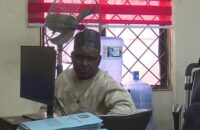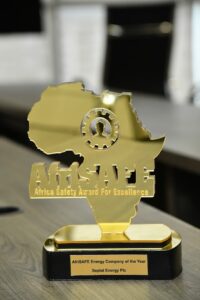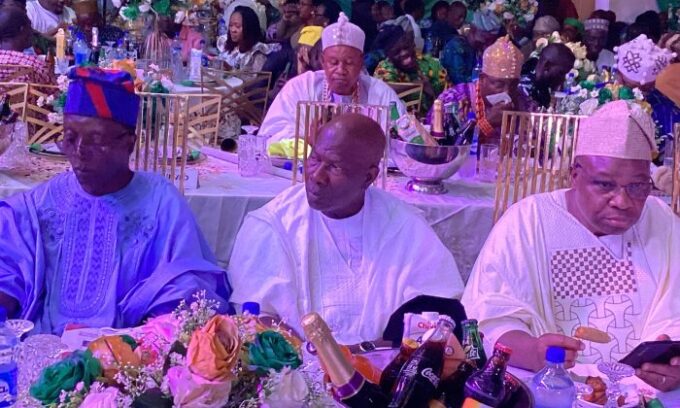The ECOWAS Brown Card Insurance Scheme was established on May 19, 1982, following the creation of the Economic Community of West African States (ECOWAS).
It was designed as a common scheme for the settlement of claims arising from accidents in the course of the free movement of goods and persons within the ECOWAS sub-region.
The Brown Card Scheme facilitates prompt and fair settlement of claims to road accident victims caused by motorist outside their country of residence.
In addition, the scheme facilitates and provides financial guarantee to Ecowas Community Motorists and their vehicles within the sub region. This scheme is similar to the Green Card In Europe.
The Scheme operates through 14 (fourteen) National Bureaux of Member State and the National Bureau in each Member State ensures the availability of Brown Card for local motorists, conducts investigations and settles claims arising from an accident caused by holders of Brown Card. It then acts as an issuing and Handling Bureau.
In the years after inception, the scheme has been faced with challenges of funding, structural inadequacies etc. In 2016, the Technical Committee of ECOWAS Commission in collaboration with the Council of Bureaux, introduced Automatic Ecowas Brown Card as a panacea to the numerous challenges of the Brown Card Scheme.
In addressing these challenges, the following have been put in place:
A harmonized format for all National Bureaux was established.
Ecowas Brown Card was adopted as a Specialized Institution of the Ecowas Commission.
Automatic Ecowas Brown Card was introduced and made Compulsory for all vehicles within the ECOWAS Space. Indeed, the adoption of the Automatic Ecowas Brown card made it a variable driver of Economic growth and Integration within the Ecowas Space.
The Automatic Brown Card further enhanced:
The Inflow of funds generated will serve the interest of all Stakeholders; most specially the Insurance Companies and provide adequate Resources to effect Fair and Prompt Payment of Claims – a key objective of the scheme.
The operators funding and Capacity to perform their role.
Harmonized Motor Vehicle Third party liability Laws and compensation regime in various States.
Fair and prompt payment of Third-Party International claims arising from ECOWAS Risk involving Liability for death, property damage and bodily Injury, incurred whether an Insured vehicle is within or outside the shores of the country where the motorist resides.
Although the Automatic Brown Card regime is yet to be adopted in Nigeria, according to the Secretary General, Nigerian National Bureau; Mrs Henrietta Anyanna, the scheme has and is fulfilling the purpose for its establishment and has the capacity to unlock the full potential of the motor insurance industry if the resources are judiciously managed.
She drew attention to the reality, that Claims worth more than =N=84 million have been paid to Nigerian Third-Party victims of Accidents as at December 31st, 2021, even in the absence of an Automatic Ecowas Brown Card regime.
“Imagine what the situation will be like, after the official implementation of the Automatic Brown Card in Nigeria.”
The scheme is putting smiles on the faces of victims as well as transforming lives of the less privileged forever she said.
Motorists have a psychological freedom from fears that they may be assailed in case of accident in a country different from their country of residence.
Also, motorist covered by the scheme are well treated as if the basic Insurance policy were underwritten with a company operating in the country visited by the motorist or through which he/she is transiting.
Furthermore, to accentuate the successes of the Scheme, a total of 3,442 cross-border claim cases were successfully handled and settled in the year 2022 alone.
At the First Zonal Meeting of the Scheme in May 2022, in Conakry; an amount of over 500,000,000 FCFA (NGN 334 million) was recorded as compensation to Third party victims of road accident.
THE NIGERIAN MARKET
Mr Ganiyu Musa, wears two hats. He is the Chairman, Nigeria National Bureau as well as the Chairman of the Council of Bureaux. Please allow me to reiterate the fact that Nigeria has the largest market in the ECOWAS Space with 22 member Companies presently.
The implementation of Automatic Ecowas Brown Card will bring on board all Motor Insurance Underwriting Companies. This Implies, that your local Insurance cover will be issued along with a Brown Card cover to ensure the ECOWAS Risk we are exposed to. This situation would be addressed further with the ongoing automation of the issuance of the Ecowas Brown Cards.
Other laudable pursuits for the Scheme before the end of Nigeria’s Tenure as Chairman, Mr. Ganiyu Musa, drives to set up a structured Database for Information retrieval that will fast-track Claims Payment, harmonize the Constitution of the entire Scheme and its Compensation regime, as well as set-up a Cross-border Regulatory Body.
Globally, Ecowas Brown Card Insurance Scheme stands to play a significant role as well as positively impact the African Continental Free Trade. It is interesting to note that the free-trade area is the largest in the world; since the formation of the World Trade Organization.
The major role of the agreement is to create a single continent-wide market for goods and services and to promote the movement of capital and naturally, persons. Thus, the need for Brown Card Cover is supported by other regional schemes such as: Yellow Card Scheme of the Eastern & Southern African Region, Pink Card Scheme in Central African Region and Orange Card for the North African Sub-region.
CONCLUSION
Despite the challenges, the Scheme has achieved tremendous success in the promotion of free movement of persons, goods and services within the ECOWAS Space.
The laudable initiatives undertaken so far, is geared towards transforming the scheme to enhance its significance on the global scene.
Insurance penetration continues to deepen within the ECOWAS Space while enhancing the spirit of cooperation and brotherhood among Head of States and Government.
The Brown Card Scheme is driving economic development as well as enhancing the social standard of the people, integration of Member States, while transforming the Insurance Industry within the Ecowas Space in the interest of all Stakeholders.














